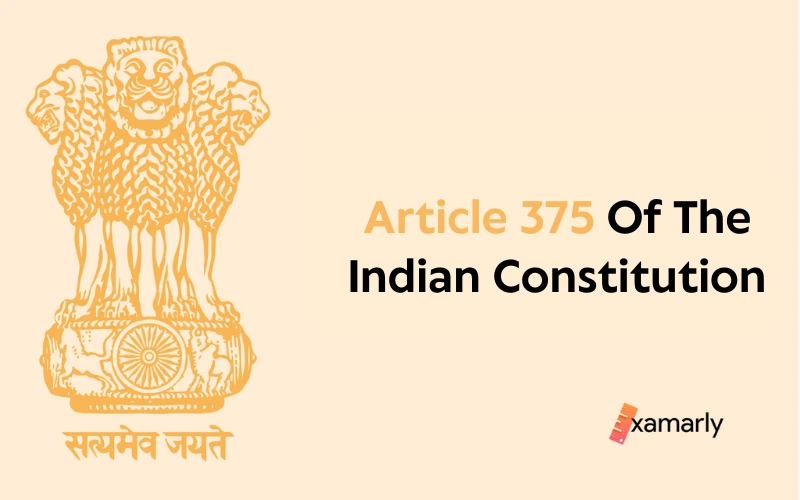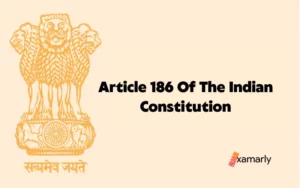Synopsis
This blog on Article 375 Of The Indian Constitution will discuss the provisions of the Indian Constitution that pertain to the jurisdiction and powers of the courts, authorities and officers throughout the territory of India.
It will explain how these institutions are to exercise their respective functions and how they are subject to the provisions of the Constitution. The reader will gain an understanding of the legal and administrative framework that governs the functioning of these institutions and their relationship with the Constitution. Let us get into the blog to know more about the Article 375 of the Indian constitution.
Detailed Explanation Of Article 375 Of The Indian Constitution
Article 375 of the Indian constitution elaborates on the principle of the continuity of jurisdiction and powers of the courts, authorities, and officers throughout the territory of India, as laid down in the Indian Constitution.
It means that all the courts of civil, criminal, and revenue jurisdiction, all authorities, and all officers, whether they are judicial, executive, or ministerial, will continue to exercise their respective functions and powers, as long as they are done in accordance with the provisions of the Constitution.
In a nutshell, Article 375 also implies that any court, authority or officer that does not comply with the constitutional provisions will be held accountable for their actions. It is a fundamental principle that ensures that the rule of law is upheld and that the rights and freedoms of citizens are protected.
Provision Of Article 375 Of The Indian Constitution
All courts of civil, criminal and revenue jurisdiction, all authorities and all officers, judicial, executive and ministerial, throughout the territory of India, shall continue to exercise their respective functions subject to the provisions of this Constitution.
- The statement in question pertains to the ongoing exercise of jurisdiction and powers by civil, criminal, and revenue courts and authorities and officers across the Indian territory.
- The following institutions are required to carry out their respective functions and powers in adherence to the provisions laid out in the Indian Constitution.
- This ensures that the legal system and administration are maintained in a consistent and orderly manner across the country.
- The statement serves as a fundamental principle, guaranteeing the rule of law and protection of citizens’ rights and freedoms.
- It establishes that courts, authorities, and officers throughout India will continue to exercise their powers and functions by the Indian Constitution.
Closing Thoughts
This blog formulated the important aspects of article 375 which deals with the principle of the continuity of jurisdictional authority and powers of courts, authorities and officers throughout India.
Do you want to understand more about the Articles of the Indian Constitution? Have a look at the blogs below.
| Article 379 Of The Indian Constitution | Article 380 Of The Indian Constitution |
| Article 381 Of The Indian Constitution | Article 382 Of The Indian Constitution |
FAQs Related To Article 375 Of The Indian Constitution
What does Article 375 of the Indian constitution say?
The Article 375 of the Indian Constitution dictates that all courts of civil, criminal, and revenue jurisdiction, as well as all authorities and officers, including those of a judicial, executive, or ministerial nature, across the Indian territory, must abide by the constitutional provisions while carrying out their respective functions.
What is the significance of Article 375 of the Indian constitution?
According to Article 375, any court, authority, or officer that does not follow the constitutional provisions will be held responsible for their actions. This principle is fundamental in ensuring that the rule of law is upheld and the rights and freedoms of citizens are safeguarded.
Which courts do Article 375 of the Indian constitution talk about?
The Article 375 of the Indian constitution comprises all courts of civil, criminal and revenue jurisdiction.
Which authorities and officers come under the Article 375 of the Indian constitution?
Judicial, executive and ministerial are the three significant authorities that come under Article 375 of the Indian constitution.






